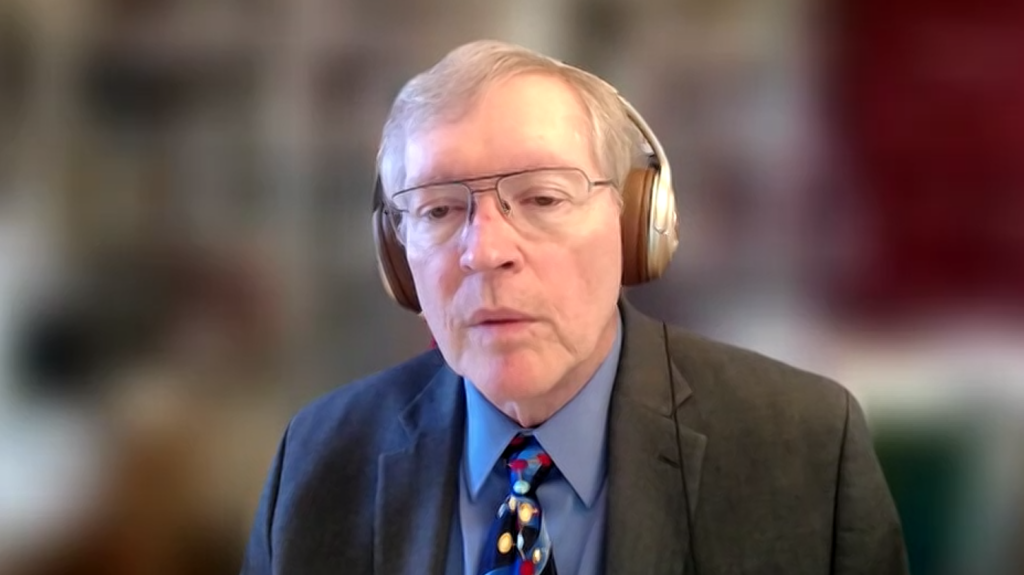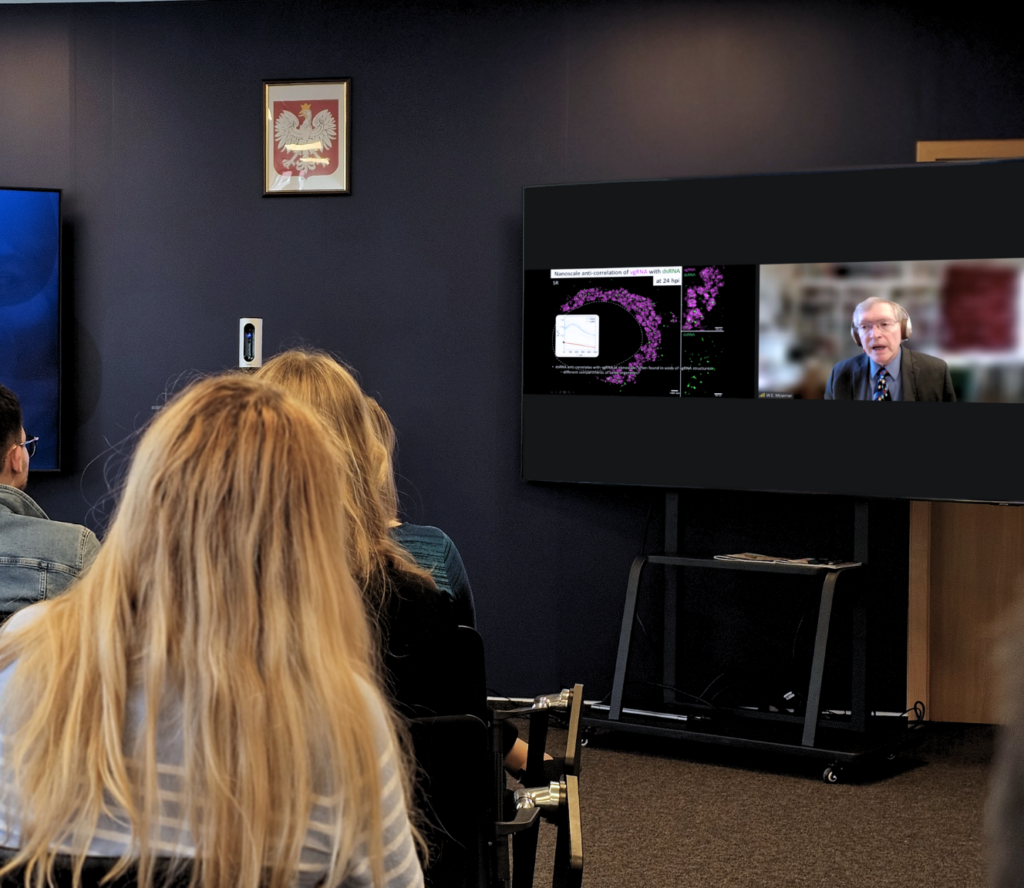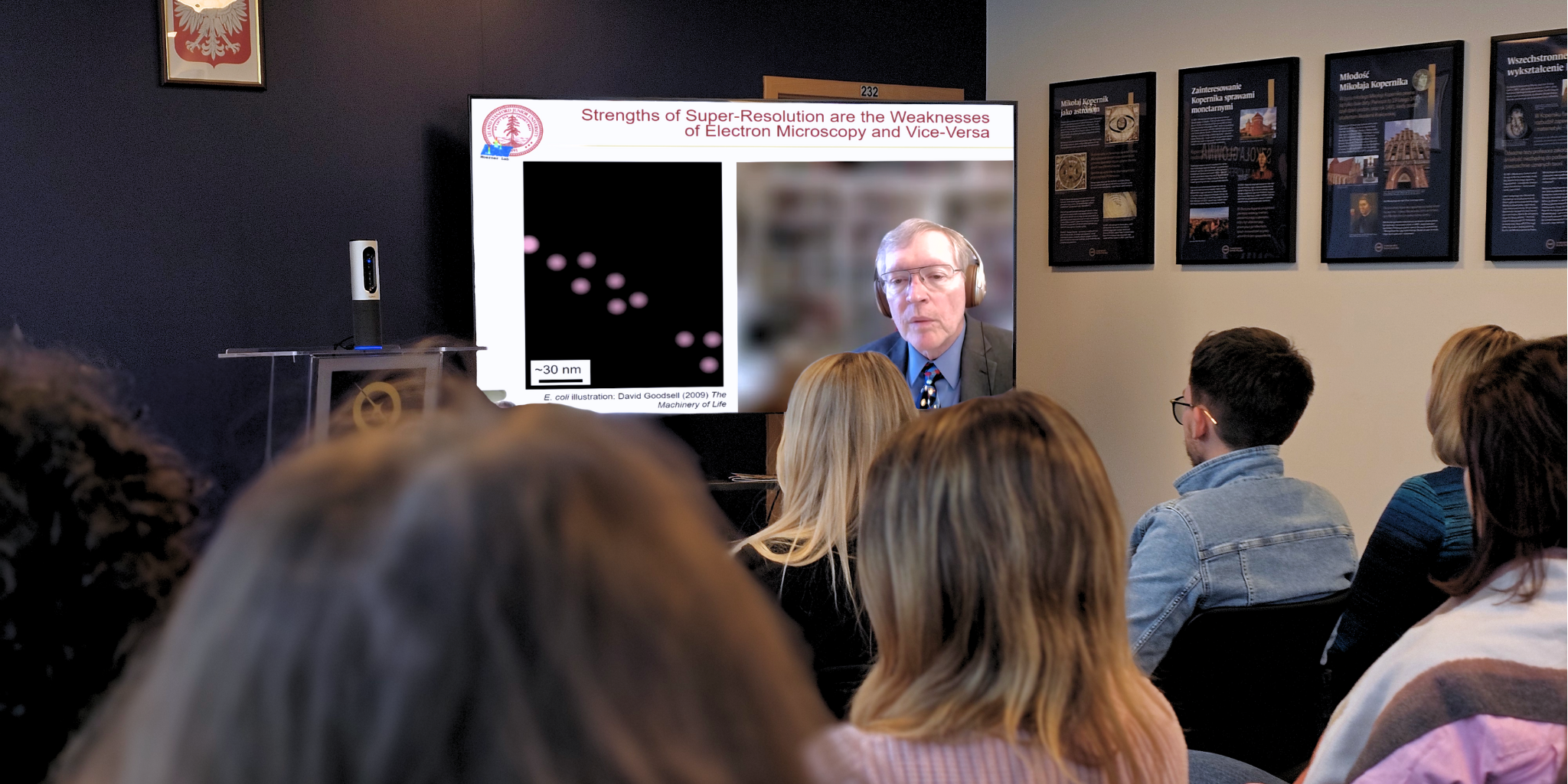Another special lecture for students and doctoral students of Nicolaus Copernicus Superior School within the framework of the “SGMK – University of the Future” initiative was delivered by Professor William E. Moerner, Nobel Laureate, Honorary Member of the Royal Society of Chemistry, Harry S. Mosher Professor of Chemistry and Professor of Applied Physics (by courtesy) at Stanford University.
In a lecture titled “Single Molecules and Light: Opening a Window into the Biological Nanoscale,” Professor Moerner introduced to participants the field of biological nanoscale research using single molecules and light emitters and talked about the importance of optical detection of single molecules and spectroscopy in the context of scientific research. He discussed flicker-light induced phenomena, the use of SMACM (Single-Molecule Active-Control Microscopy) for super-resolution imaging, nanoscale anti-correlation in the course of infection and the general mechanism of coronavirus genome replication.


After the lecture, Professor Moerner invited participants to ask questions. The lecture and following discussion were attended by the students from the Doctoral School of the SGMK College of Medical Sciences and students from other SGMK majors, including MBA participants.

Prof. William E. Moerner – Biography
- E. (William E.) Moerner, the Harry S. Mosher Professor of Chemistry and Professor (Courtesy) of Applied Physics at Stanford University, is widely recognized for the first optical detection of a single molecule in condensed matter at IBM Research (1989). Dr. Moerner received his Ph.D. in physics from Cornell University in 1982, after which he joined IBM Research to develop spectral hole-burning for frequency domain optical storage and photorefractivity for holography. In 1995, he became a Distinguished Professor of Physical Chemistry at the University of California, San Diego, broadening his research to include biological systems and biophysics. Recruited to the Stanford University Chemistry Department faculty in 1998, he served as Department Chair from 2011 to 2014. Over his 28-year academic career, he has conducted research in physical chemistry, biophysics, and the optical properties of single molecules, and is actively involved in the development of 2D and 3D super-resolution imaging and single-molecule tracking for cell biology and nanoscale science along with single-molecule optical studies of photosynthesis. Professor Moerner’s contributions have been widely recognized with numerous awards, particularly with the Nobel Prize in Chemistry in 2014 “for the development of super-resolved fluorescence microscopy,” which relied upon single-molecule detection and the discovery of blinking and optical control of single green fluorescent proteins at room temperature (1997). Additional awards include the Eerle K. Plyler Prize in Molecular Spectroscopy, the Wolf Prize in Chemistry, the Irving Langmuir Prize in Chemical Physics, the Peter Debye Award in Physical Chemistry, and Fellowship in seven national and international scientific societies.
For more information: Moerner Lab (stanford.edu), news.stanford.edu.
Professor Moerner’s lecture was delivered within the framework of the “SGMK – University of the Future,” a special lecture series organized as part of a university-wide collaboration of the Colleges of the Nicolaus Copernicus Superior School.
So far, special lectures for SGMK students and doctoral students have been given by, among others, Prof. Joachim Frank (Nobel laureate, Columbia University), Dr. Michael L. Brodie (Harvard University and M.I.T.), Prof. John Tasioulas (Oxford University), Prof. Mark Coeckelbergh (University of Vienna), Jonathan Brill (futurologist), Dr. Ousmène Jacques Mandeng (Accenture and Harvard Review expert), Gerd Leonhard (futurologist, one of the world’s best speakers), Thomas Frey (futurologist, ranked the best futurologist in the world by Google), or Prof. Peter C. Bishop (University of Houston).
SGMK – University of the Future is an initiative supporting quality education, which aims to provide students in Poland with direct access to the knowledge of outstanding scientists and specialists from around the world, without the need to go abroad. Nicolaus Copernicus Superior School’s “University of the Future” enables students to attend lectures, classes and workshops conducted by scientists from Harvard, Cambridge, Oxford, and M.I.T. Universities, among others, including many Nobel Prize winners, or specialists and experts from the world’s science, research and consulting centers.








